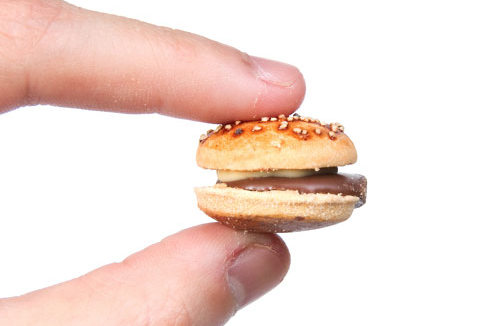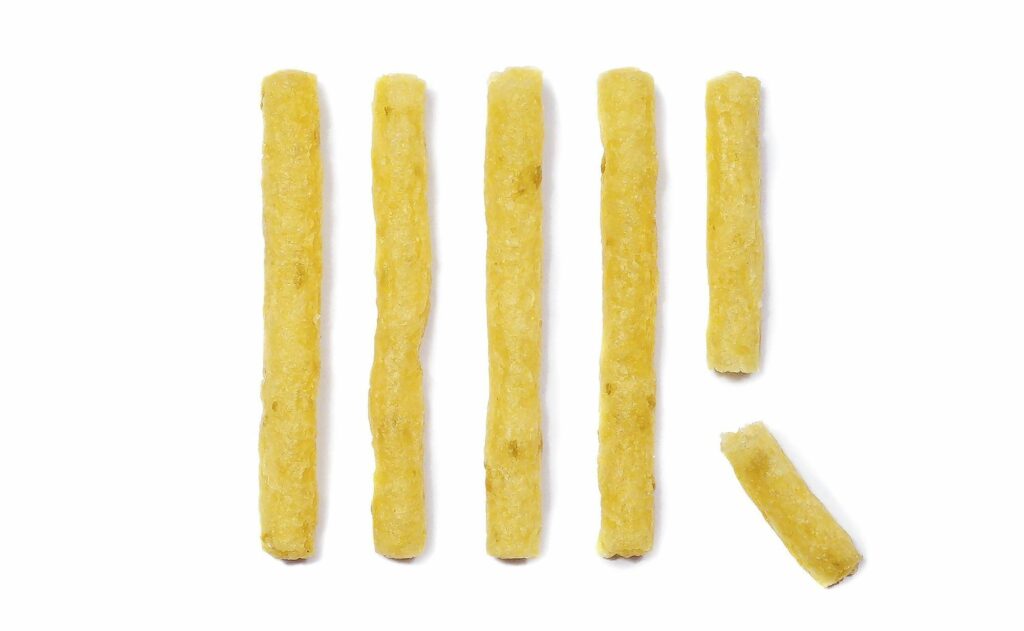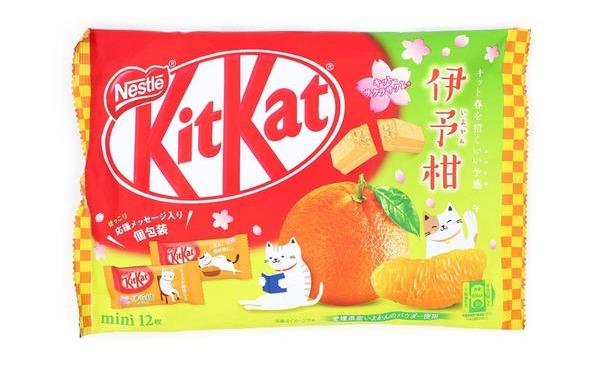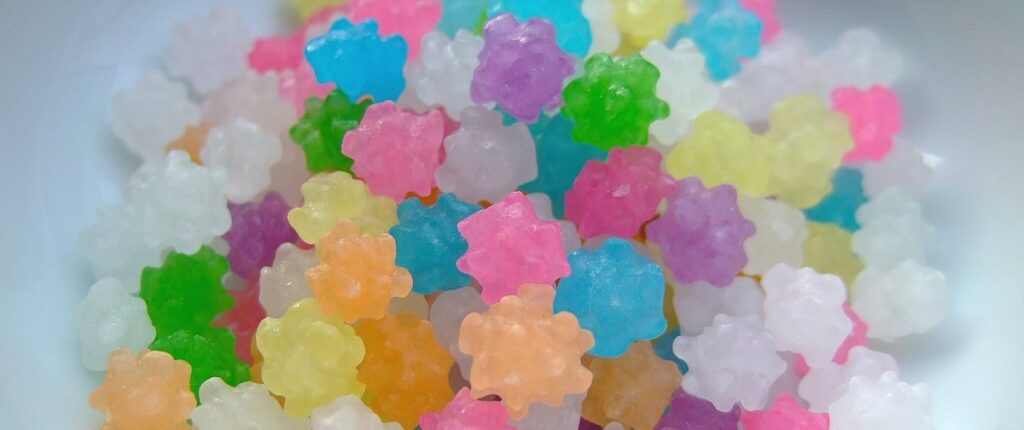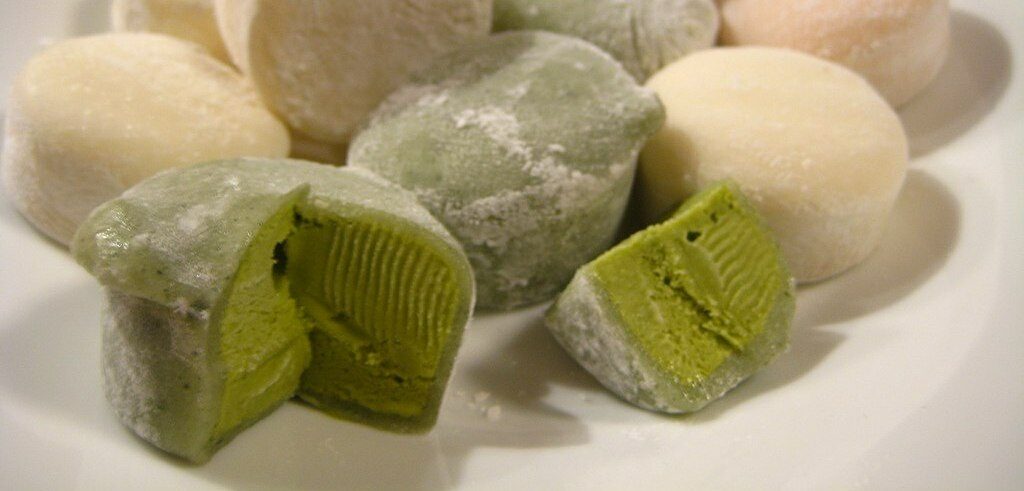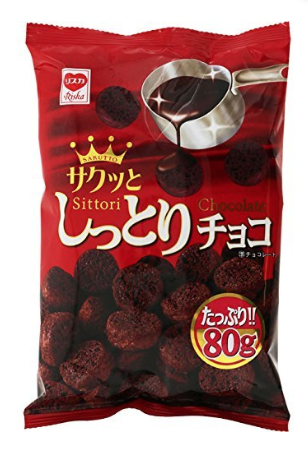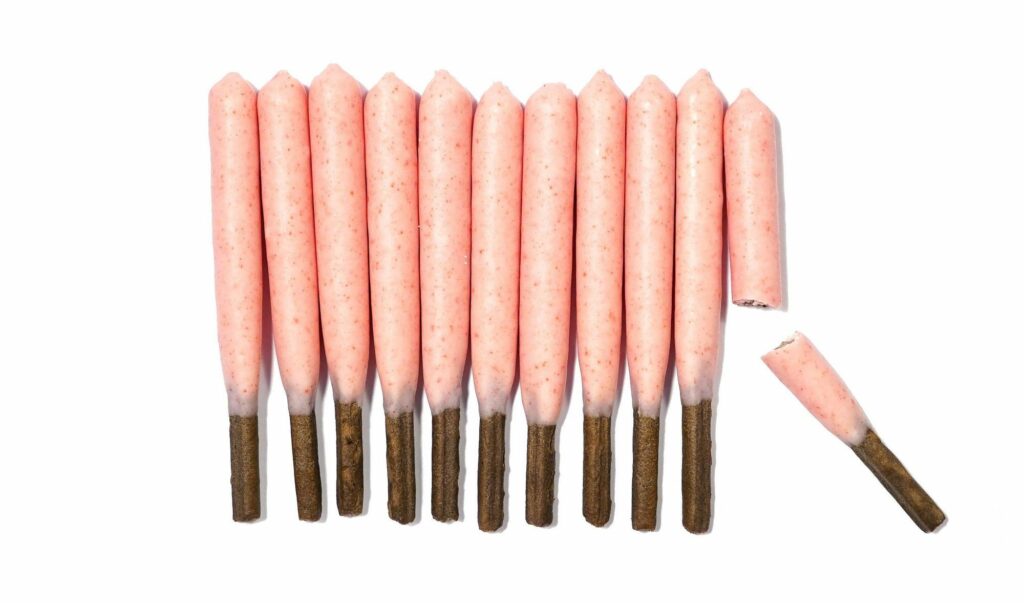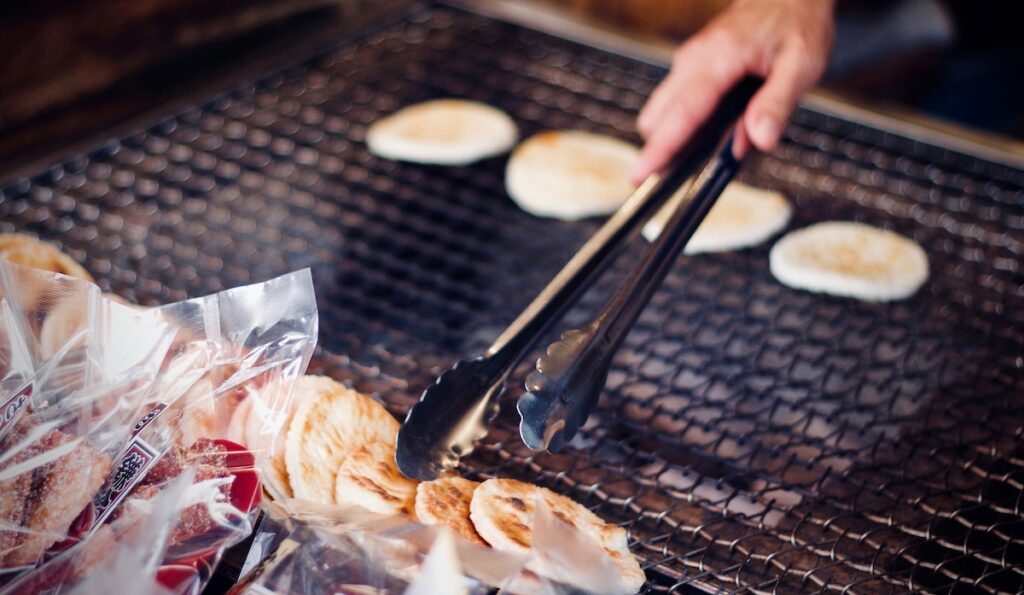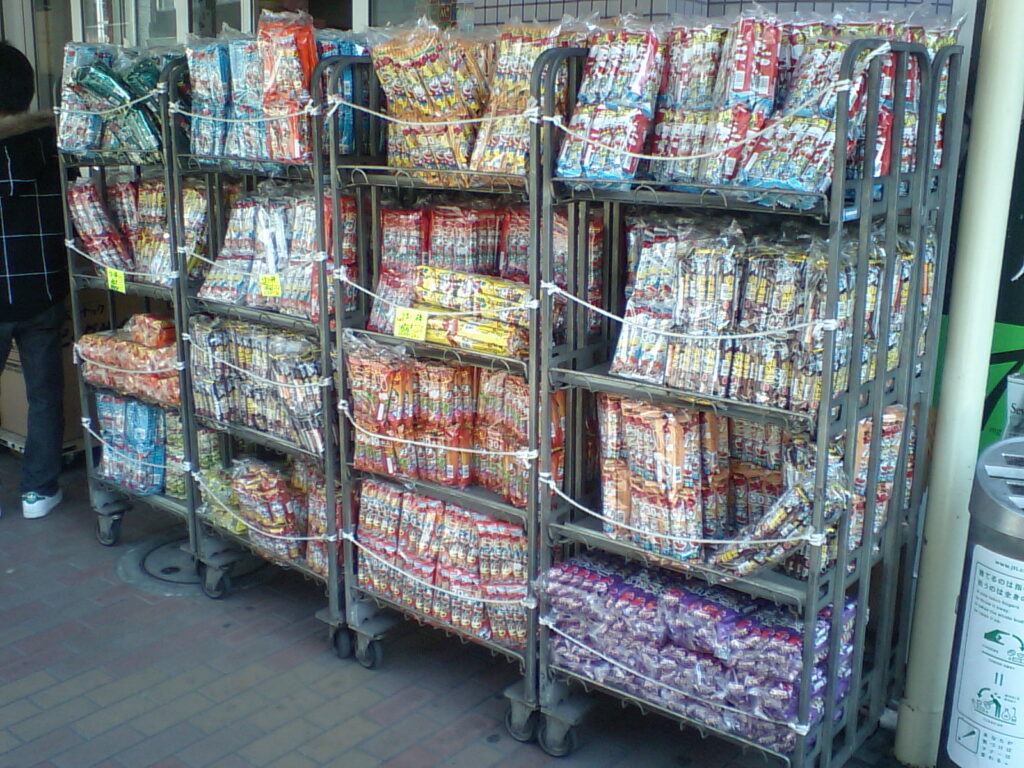I think you’d agree, there’s something curiously captivating about Japanese snacks and candy. They say thebest way to get to know a culture is to learn its language and eat its food—and one of those strategies is much more fun than the other! When it comes to experiencing Japanese culture, candy and snacks are a great place to start. We’ll tell you all about the tastiest, most mind-blowing treats and how to get your hands on them.
Japanese culture is not only one of the oldest, but it’s also one of the most innovative in the world. That tradition-mixed-with-invention is evident in Japanese cuisine, and not the least of all in its snacks!
You may have heard about some really weird potato chip flavors, or outrageous Kit Kat varieties, and I’m here to tell you: It’s all true. And there’s more.
From traditional to innovative, from street food to snack corporations, Japanese snacks and candy are a world unto themselves.
We’ve chosen the best of the best Japanese snacks and candies to help you get started exploring beautiful Japanese culture!
1. Arare
Arare (air-a-RAY) are small, bite-sized crackers made from sticky rice—similar to senbei, except for the shape and size. They are traditionally flavored with soy sauce, but modern Japanese snack makers are exploring other flavors such as butter, lemon and vinegar, and cheese curry.
Flavor profile: Savory
Texture: Crunchy
2. Japanese Chips
Before you say that chips aren’t Japanese, hear me out. Because even the chips you think you know, you don’t know in Japan.
- Lays potato chips come in seaweed and habañero.
- Pringles are generally available in flavors such as N.Y. cheeseburger, green curry, spicy sour cream and onion, smoky potato salad, eggs benedict, and so much more.
- Cheetos are available in flavors like butter scallop, salty shrimp, spicy chicken, and wasabi cheese.
And then there are the chips you don’t know, like the many varieties of lotus root chips. So, yes, chips are one of the best Japanese snacks!
Flavor profile: Varies
Texture: Crispy
3. Choco Banana
Also sometimes known as the Tokyo Banana, it’s exactly what it sounds like: a banana covered in chocolate. These are popular street vendor items during Japan’s summer festival, served on a stick. In addition to a coating of chocolate, they are often drizzled with other icing and/or rolled in sprinkles.
Flavor profile: Sweet
Texture: Soft
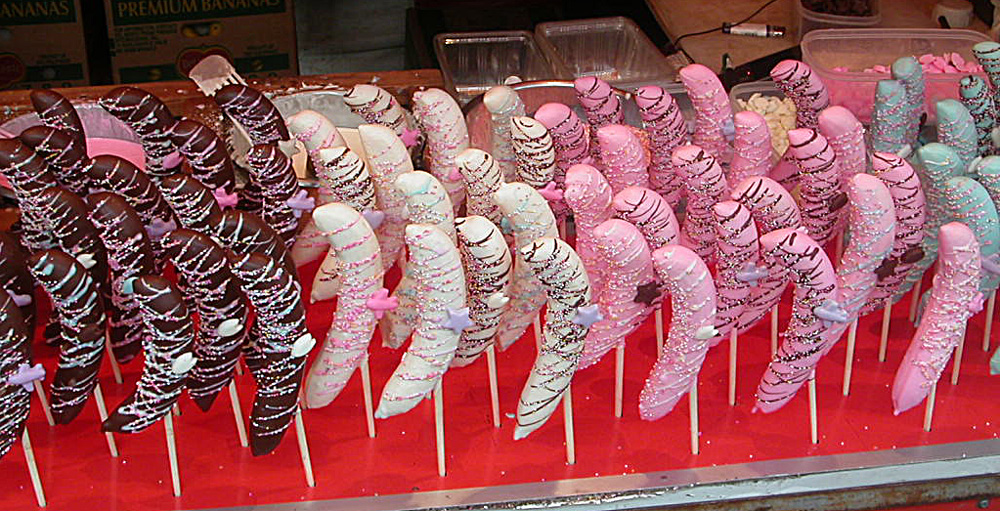
4. Dorayaki
Dorayaki (dor-a-YAH-key) is a sandwich-style confection made of two pancakes and a sweet filling—traditionally a red-bean paste. Japanese pancakes are fluffier and sweeter than most Western pancakes, which you notice as soon as you bite into one of these treats.
Another popular street vendor snack, these are so popular than many Japanese snack makers now package them for grocery store shelves. They’re also mixing up the fillings to give us options like chocolate and maple-flavors.
Flavor profile: Sweet
Texture: Soft
5. Every Burger Chocolate Cookies
Tiny chocolate “burgers,” because why not? These cookies are about the size of a quarter. The “buns” are a pastry crust, surrounding a layer of chocolate (the “burger”) and a very thin layer of white chocolate (the “cheese”). Super cute AND delicious.
Flavor profile: Sweet
Texture: Flaky
6. Jagabee Potato Sticks
Jagabee (jah-gah-BEE) potato sticks look like shoestring french fries and crunch like potato chips. They are fried strips of sliced potato, lightly seasoned with flavors like salt, butter soy, and cheese.
Flavor profile: Savory
Texture: Crunchy
7. Jagariko Potato Sticks
But wait, you also need to try jagariko (ja-gah-REE-ko) potato sticks. Same shape and basic texture as the jagabee sticks, and we’re still on potatoes, but the difference is in the recipe.
Jagariko potato sticks are made by steaming and mashing the potatoes, adding in flavor, and then reforming and frying. Instead of a light flavor dusted on top, these have the flavor baked in, which packs more of a punch and makes for a more solid texture.
Those flavors also get a little more ambitious, with options like honey butter, sour plum, hot peppers, and more.
Flavor profile: Varies (Traditionally savory)
Texture: Crispy
8. Kaki No Tane
Kaki no tane (KAH-kay no TAH-nay)—sometimes written kakinotane—are small, crescent-shaped rice crackers. They are sometimes mixed with peanuts and served as bar food, but are also eaten independently as a very popular Japanese snack.
They are similar to arare and senbei, except (again), for the size and shape. Similar to other Japanese rice crackers, they are traditionally flavored with soy sauce, but modern Japanese snack makers have gotten more adventurous. Now, kakinotane is available in flavors like ginger, sweet cinnamon, chili peppers, and more.
Flavor profile: Varies (Traditionally savory)
Texture: Crunchy
9. Kinoko No Yama
Kinoko no yama (KEE-no-koh no yah-mah) are tiny, mushroom-shaped snacks, usually considered candy. The caps are chocolate and the stems are a light, crispy biscuit, which also makes them easy to eat without getting your fingers chocolatey.
Consumers can buy a box of kinoko no yama off most convenience store shelves, but you can also get a DIY kit from grocers as well. The kit comes with a plastic mold, white icing (for dotting and decorating the mushroom caps, chocolate that needs melted and then poured, and a package of biscuit stems.
Flavor profile: Sweet
Texture: Crunchy and soft
10. Kit Kat
It’s fairly well known by now that Japan does Kit Kat differently, but did you know they’ve done it more than 300 times?! Many have been limited runs and are no longer available, but that’s still a lot of Kit Kat flavors.
Some Japanese Kit Kat varieties also come in bite-sized pieces instead of the traditional stick quartet.
Mochi Kit Kat is the Japanese version most people are familiar with, but they’ve also crunched on cranberry almond, sake, sweet potato, chocolate cranberry, apple pie, mandarin orange, and more.
Flavor profile: Sweet
Texture: Crunchy
11. Konpeito Sugar Candy
Konpeito (kohn-PEE-toh) are small (no bigger than 10 mm), unflavored, multi-colored sugar candies with a long history in Japan.
Portuguese traders introduced the candy-making process to Japan in the 16th century, and konpeito was the first candy produced. Sugar was rare, the process of refining it was new, and the candies (still) take more than a week to make—so they were expensive and very rare. Emperors gave them as gifts.
While more common and affordable today, they are still an honorable gift, and one of the best Japanese candies.
Flavor profile: Sweet
Texture: Hard
12. Matcha (Everything)
Matcha (MAH-cha) is a traditional variety of green tea that has such a long history in Japan, the flavor is now added to a variety of foods and snacks. Matcha tea is made from grinding the tea leaves to a fine powder, so it’s easy enough to incorporate into just about anything—from coffee drinks to pastries and candy bars.
Matcha tea has a distinct flavor. It’s deeper than other green teas: earthy and savory, with a little sweetness, and often a hint of that familiar, green tea bitterness. There are quite a lot of health benefits of matcha tea—although few people think about antioxidants when they mix matcha into chocolate pastries.
Flavor profile: Savory with a little sweet
Texture: Varies
13. Mochi
Mochi (MOH-chee) are round, chewy cakes made from sticky rice and water. They are traditionally eaten plain, but can be flavoured, colored, topped, or filled with ice cream or red bean paste.
Available and common year-round, mochi is also specifically associated with new year celebrations in Japan. During new year celebrations, many Japanese snack makers take time to make mochi according to the traditional, ceremonial process called monozukuri.
Flavor profile: Varies – Traditionally bland
Texture: Chewy
14. Morinaga Soft Caramels
Morinaga (mor-EE-nah-gah) is a famous candy and snack maker in Japan, and one of the longest-standing, most beloved candies are their milk soft caramels. Milk caramels were introduced in 1897 and remain a favorite in Japan more than 100 years later. The classic yellow box from Morinaga has become synonymous with the soft milk caramels.
Flavor profile: Sweet
Texture: Chewy
15. Sakutto Chocolate Corn Puffs
Sakutto (sah-koot-toe) chocolate corn puffs are newer to the Japanese snack market but already a standard, low-cost snack. Corn puffs are a little heavier than rice puffs, and the corn brings out a natural nutty flavor that’s deeper than rice and pairs better with the chocolate coating on these. They come in several flavors including Matcha tea and people are raving about them. Be careful, some folks find them addictive!
Flavor profile: Sweet
Texture: Crunchy
16. Pretz
Pretz is a very popular modern Japanese snack made by Glico. It’s essentially a thin, crisp bread stick with a pretzel-like texture, but—like many modern Japanese snacks—the variety of options keeps you on your toes.
Pretz come in smaller, kids’ sizes and giant sizes, in addition to the standard. They’re usually dusted with flavors—like tomato, honey, corn, coffee, salted caramel, and more—but the kids’ sizes are sweeter. There are “Double Pretz” options that put two flavors on each stick, and a “Meets Wine” variety that tastes like cheese.
Flavor profile: Savory (usually)
Texture: Crunchy
17. Pocky
Pocky are one of the most popular Japanese snacks, famous worldwide. They are another thin, biscuit stick, this time with a candy coating. The bottom of the stick is left uncoated for clean fingers.
The first Pocky sticks hit the market in the 1960s, coated in chocolate. A few years later, Pocky also had an almond-flavored candy coating, and then strawberry. You won’t be surprised to hear that, now, Pocky are—or have been—available in an array of flavors, including cookies and cream, matcha, chocolate banana, and strawberry cheesecake.
Pocky are so popular, they have their own (unofficial) holiday. November 11 is National Pocky Day in Japan.
Flavor profile: Sweet
Texture: Crunchy
18. Senbei
Have you ever scrolled through the emoji on your phone and wondered what this is: 🍘 ? It’s a senbei (SEN-bay) rice cracker with a small piece of seaweed wrapper (nori), used for holding.
Senbei have been a Japanese snack staple for thousands of years, which means there are countless variations on the theme, and some regional standards.
- Traditionally circles, they are also easy to form into hearts, stars, or any other basic shape.
- Traditionally crunchy, they are also sometimes served soft.
- They’re common street vendor items, but have also been packaged for shelves.
Traditional senbei are salted or lightly seasoned with soy sauce, mirin, or sugar. Sweet variations are often flavored with fruit and written on with icing. Seasonable senbei varieties are often shaped, colored, and flavored for fall or spring.
Flavor profile: Varies – Traditionally savory
Texture: Crunchy
19. Taiyaki
Taiyaki (TIE-yah-kee) is another classic street vendor snack in Japan. It is a fish (tai)-shaped cake, traditionally filled with sweet red bean paste. Other common fillings include chocolate, custard, cheese, and sweet potato.
The best taiyaki experience is definitely getting one warm off the grill, and it is possible outside Japan. Major cities in the U.S., like New York and Chicago, have taiyaki shops that make the iconic fish-shaped cakes. Want to try to make it at home? Check out this authentic Taiyako maker.
Variations on the traditional taiyaki cakes aren’t limited to filling flavors either. Some slice the pancakes to make sandwiches, while many U.S. taiyaki cafes have added ice cream.
Flavor profile: Sweet
Texture: Soft
20. Takenoko no Sato
Takenoko no sato (TAH-kay-no-koh no sa-TOH) are essentially the same as kinoko no yama, but shaped differently. They’re the same sweet, crisp biscuit covered in chocolate. But where kinoko no yama are shaped like tiny mushrooms, these are shaped like tiny bamboo shoots.
Created by the same Japanese snack makers, these are usually right next to each other on the shelf. Takenoko no sato don’t have the long, uncoated stems that the mushroom-shaped candies have, so you really just have to decide if you want clean fingers or more chocolate.
Flavor profile: Sweet
Texture: Crunchy
21. Umaibo
Umaibo (oo-MY-a-boh) literally translates to “yummy sticks,” and that’s what they are. These are puffed corn snacks shaped into small cylinders—similar to a large cheese puff, but (you guessed it) in a huge variety of flavors.
They’re individually wrapped and usually sold at convenience stores for about ten cent each. They also come in large packages.
Some of these flavors include roe, natto (fermented soybeans), cheese, salami, curry, shrimp and mayonnaise, chocolate, beef tongue, and pizza.
Flavor profile: Varies
Texture: Crunchy
Start (Japanese) Snacking!
These are 21 of the most traditional, most popular, the best Japanese snacks and candies, but there are so many more! We haven’t even gotten to gummies, yeast bread cakes, or chocolate-infused strawberries.
Where do you start? You can pick a couple favorites and start scouring online stores, but the best way to indulge is definitely letting someone with experience curate a box of snacks and deliver it to your door.
There are several Japanese snack box subscription services on the market, and if you’re going to start snacking, they’re worth it. Subscription services do the shopping for you, and—if you sign up with one that’s actually based in Japan—they can find snacks and treats you can’t even find online.
One subscription service, Bokksu does more than shop—they partner with Japanese snack makers that have been in the business for generations.
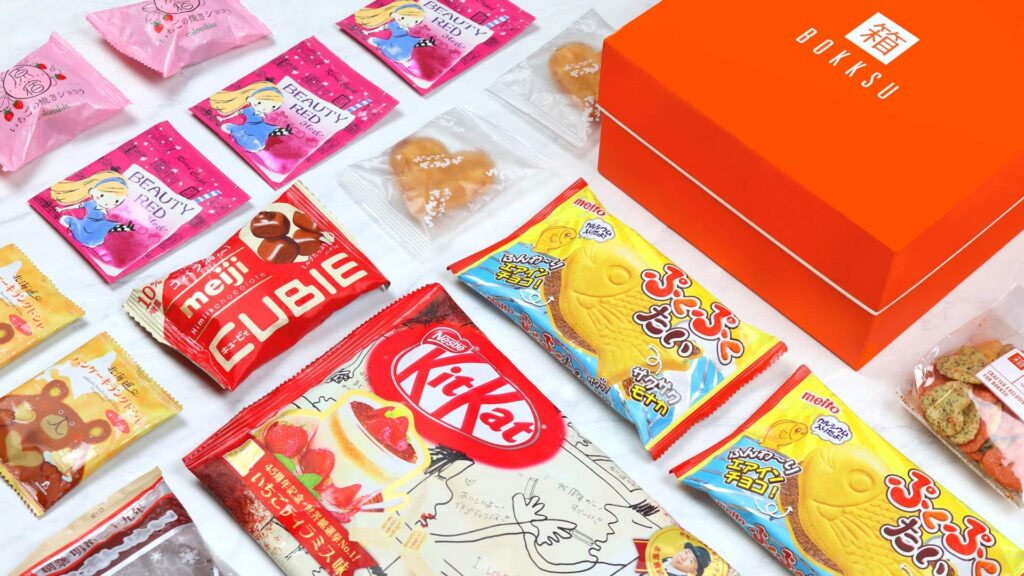
Those makers have mastered the traditional Japanese snacks and candy—like senbei and taiyaki—but they’re also still innovating and creating. So you get a carefully crafted selection of classic Japanese snacks, and new treats that are just hitting the market in Japan!
However you do it, definitely start digging in!
ABOUT THE AUTHOR:





